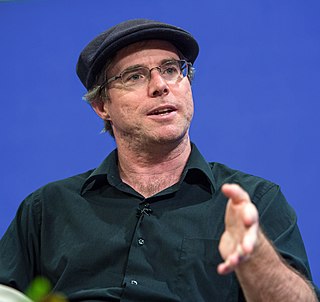A Quote by Kyle Hill
The disturbing truth about science communication is that we have theories and ways of delivering messages that really are like putting a candle to the dark, as Carl Sagan would say. We aren't sure what will work, when, or how much. But for all that uncertainty, that doesn't mean we shouldn't try.
Related Quotes
I remember that one time Carl Sagan was giving a talk, and he spelled out, in a kind of withering succession, these great theories of demotion that science has dealt us, all of the ways in which science is telling us we are not who we would like to believe we are. At the end of it, a young man came up to him and he said: "What do you give us in return? Now that you've taken everything from us? What meaning is left, if everything that I've been taught since I was a child turns out to be untrue?" Carl looked at him and said, Do something meaningful.
I think I set myself on a course to become a scientist around about the time that Carl Sagan's 'Cosmos' series was on television, and there really was no going back for me at that point, and then I went on to study space science and then get my Ph.D., then go aboard and work in the European Space Agency.
Carl Sagan always used to say that when he was trying to explain something to someone, he would go back to that time when he didn't understand it, and then he would retrace his thought steps so that he could make it absolutely clear, and that's one of the infinite number of things I learned from him.
When you're operating on uninvestigated theories of what's going on and you aren't even aware of it, you're in what I call "the dream." Often the dream becomes troubling; sometimes it even turns into a nightmare. At times like these, you may want to test the truth of your theories by doing The Work on them. The Work always leaves you with less of your uncomfortable story. Who would you be without it? How much of your world is made up of unexamined stories? You'll never know until you inquire.
My scientist friends have come up with things like 'principles of uncertainty' and dark holes. They're willing to live inside imagined hypotheses and theories. But many religious folks insist on answers that are always true. We love closure, resolution and clarity, while thinking that we are people of 'faith'! How strange that the very word 'faith' has come to mean its exact opposite.
As my old professor Carl Sagan said so often, 'When you’re in love, you want to tell the world.’ And I base my beliefs on the information and the process that we call science. It fills me with joy to make discoveries every day of things I’ve never seen before. It fills me with joy to know that we can pursue these answers. It is an astonishing thing that we are — you and I are one of the ways the universe knows itself.
I would teach how science works as much as I would teach what science knows. I would assert (given that essentially, everyone will learn to read) that science literacy is the most important kind of literacy they can take into the 21st century. I would undervalue grades based on knowing things and find ways to reward curiosity. In the end, it's the people who are curious who change the world.

































